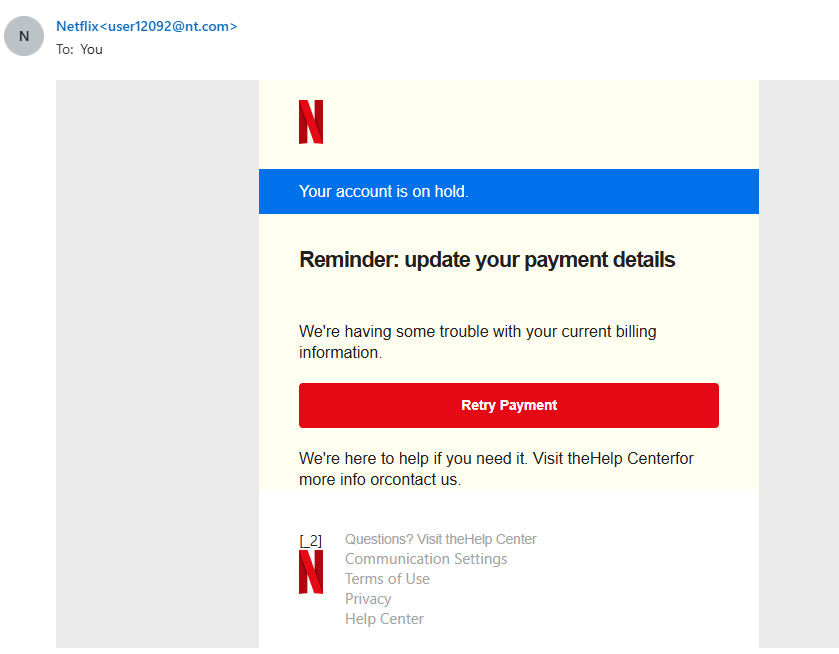Phishing Scams: What to Watch For

We’ve all seen them—those shady emails that almost look legit. But not today, “user12092@nt.com”…
Phishing scams are a type of cyber-attack where scammers impersonate trusted companies to trick you into giving up personal info—like passwords, credit cards, or other sensitive details. These messages show up as emails, texts, websites, or even phone calls, often pretending to be from banks, delivery services, or big-name platforms like PayPal or Facebook.
Here’s what to look out for—and how to stay protected:
Common Types of Phishing Scams
- Email Phishing
The classic: a message that looks official, asking you to click a link or download a file. It might look like your bank or a company you trust—but it’s not. - Spear Phishing
More targeted and convincing. These scams use personal details to make the message feel legit—usually aimed at one person or company. - Clone Phishing
A real email gets copied and twisted. Scammers change the link or file and resend it to trick you. - Whaling
Big fish, big scam. These go after executives, CEOs, or public figures—often with high-stakes consequences. - SMiShing
Phishing by text. You’ll get a message that seems urgent, with a suspicious link or request. - Vishing
Scammers call you pretending to be from your bank, tech support, or even the IRS—trying to get passwords, PINs, or gift cards.
How to Stay Safe
- Check the Sender
Is that email really from who it claims to be? Double-check the address—look out for odd spellings or sketchy domains. - Slow Down
Phishing works by creating panic. If a message screams “URGENT!”—take a breath and investigate first. - Hover Over Links
Before you click, hover over the link to preview the URL. If it looks off, don’t click. - Keep Info Private
Never share personal or financial details over email, text, or phone unless you’re absolutely sure who you’re dealing with. - Use Strong Security Software
A good antivirus can help catch phishing attempts before they reach you. - Enable Two-Factor Authentication
That extra layer of protection can block scammers even if they get your password. - Keep Everything Updated
Updates fix security holes. Don’t ignore them—keep your system, apps, and browser current. - Stay Informed
Phishing techniques are always evolving. The more you know, the safer you are.
At Mount Vernon Computers, we help folks throughout Alexandria, Fairfax, and the DC area protect their data and avoid these kinds of scams. If something looks suspicious—or if you’ve already clicked—we’re here to help.
Stay smart. Stay safe. And if in doubt? Give us a call.
